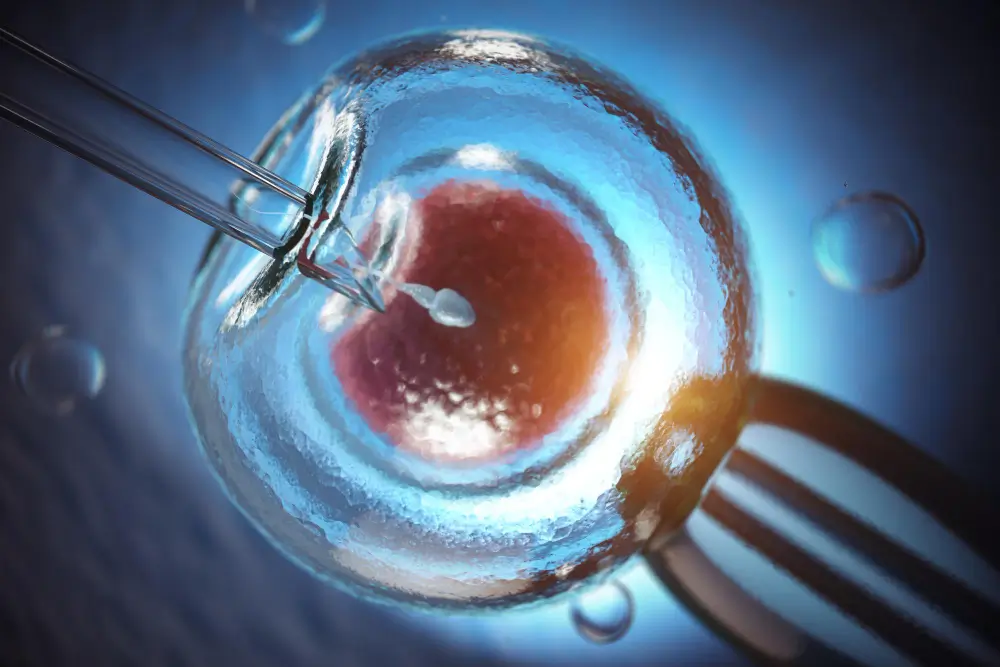When couples face fertility challenges, two of the most common treatment options they hear about are artificial insemination vs IVF. Both procedures aim to help achieve pregnancy, but they differ in complexity, cost, and success rates. Understanding IVF vs IUI (intrauterine insemination) can help you make an informed choice based on your age, fertility condition, and goals. In this guide, we’ll explore the differences, advantages, and situations where one treatment might be a better fit than the other.
What Is Artificial Insemination (IUI)?
Intrauterine insemination (IUI), often referred to as artificial insemination, is a minimally invasive fertility procedure. It involves placing washed and concentrated sperm directly into the uterus around the time of ovulation. The process bypasses the cervix and brings sperm closer to the egg, improving the chances of fertilization.
When is IUI recommended?
- When the male partner has mild sperm abnormalities (low count or motility).
- If the female has ovulation irregularities or unexplained infertility.
- When couples want a less invasive, more affordable fertility option.
- For single women or same-sex couples using donor sperm.
The IUI procedure step by step generally includes ovulation monitoring, semen preparation, and insemination, followed by a short resting period. The process takes only a few minutes and feels similar to a Pap smear—no anesthesia required.
What Is IVF (In Vitro Fertilization)?
In vitro fertilization (IVF) is a more advanced fertility treatment. Eggs are retrieved from the ovaries and fertilized with sperm in a lab setting. Once embryos form, one or more are transferred into the uterus. IVF is highly effective, especially for couples with severe infertility or blocked fallopian tubes.
IVF pregnancy offers higher success rates compared to IUI, especially for women over 35 or those with complex fertility issues. The process includes ovarian stimulation, egg retrieval, fertilization, and embryo transfer — typically taking 4 to 6 weeks from start to finish.
Artificial Insemination vs IVF: Key Differences
| Feature | Artificial Insemination (IUI) | In Vitro Fertilization (IVF) |
| Procedure | Sperm injected into uterus | Egg fertilized in lab and embryo transferred |
| Invasiveness | Minimal | Moderate (includes egg retrieval) |
| Medications | Fewer | Multiple hormone injections |
| Success Rate | 10–20% per cycle | 40–60% per cycle (depends on age and cause) |
| Cost | More affordable | More expensive |
| Ideal For | Mild fertility issues | Complex or severe infertility cases |
If you’re comparing insemination vs IVF, remember that IUI might be your first step — it’s simpler and less costly. However, for patients who’ve tried multiple IUIs without success, IVF often provides a better outcome.
Success Rates and Factors to Consider
The choice between IUI vs IVF depends on various factors:
- Age: Women under 35 often respond well to IUI; after 35, IVF usually offers higher success rates.
- Fertility Diagnosis: If the issue involves blocked tubes, severe endometriosis or poor egg quality, IVF is generally recommended.
- Budget: While IVF is more costly, it often delivers results faster, potentially saving time and emotional energy.
- Medical History: Your fertility specialist will review your hormonal profile, uterine health, and semen analysis before recommending a path.
Using Donor Eggs and Sperm
In some cases, IVF pregnancy may involve donor eggs or donor sperm, particularly when the intended mother cannot produce viable eggs. Working with a reputable Egg donation agency in USA such as Indian Egg Donors ensures that all donors are screened medically, genetically, and psychologically.
Indian Egg Donors offers access to top-quality donor profiles and helps coordinate with fertility clinics worldwide, making the IVF process smoother and more reliable.
Emotional and Physical Aspects
In terms of emotional stress, both IUI and IVF aren’t easy. While IUI is easier, IVF involves multiple injections, hormone adjustments, and medical visits. But, many patients appreciate the structured nature of IVF, which is relaxing because each procedure is closely monitored. The counseling and support for partners are crucial to keeping the mental health of patients during any procedure.
Physically, IUI causes minimal discomfort, while IVF includes egg retrieval — a short, sedated procedure. Recovery is typically quick, and most patients resume normal activities within a day or two.

Choosing Between IUI and IVF
Still wondering what is IUI vs IVF and which to choose? Here’s a quick guide:
- Start with IUI if you’re young, your tubes are open, and sperm parameters are near normal.
- Move to IVF if you have multiple unsuccessful IUIs, are over 35, or have known medical infertility causes.
- Combine options if needed — some couples attempt a few IUIs before transitioning to IVF.
Consulting an experienced fertility specialist can help tailor your plan based on personal goals, medical conditions, and the timeline for conception.
Final Thoughts
Choosing between artificial insemination vs IVF is a deeply personal decision. Both treatments offer hope, but they serve different needs. IUI is ideal for those seeking a low-cost, non-invasive start, while IVF provides a more comprehensive, higher-success option for complex fertility challenges.
Whether you’re exploring insemination vs IVF or considering IVF pregnancy through donor eggs, partnering with a trusted Egg donation agency in USA like Indian Egg Donors ensures ethical sourcing, medical excellence, and emotional support throughout the process.
Each fertility journey is unique — with the right knowledge and expert guidance, your dream of parenthood can become a reality.
Still unsure whether IUI or IVF is right for you? Contact us today to speak with our fertility experts and receive personalized guidance for your parenthood journey.
Frequently Asked Questions:-
Q. What’s the main difference between Artificial Insemination vs IVF?
Ans. When comparing Artificial Insemination vs IVF, the main distinction lies in the procedure. Intrauterine Insemination (IUI) involves placing sperm directly into the uterus, while IVF fertilizes eggs in a lab before transferring embryos to the uterus.
Q. Which is more successful—IVF or IUI?
Ans. When discussing IVF vs IUI, success rates differ greatly. IVF pregnancy generally offers higher success rates (40–60% per cycle) compared to IUI (10–20%), especially for women over 35 or those with complex fertility issues.
Q. Is IUI or IVF more affordable?
Ans. If you’re comparing Insemination vs IVF, IUI is usually much more affordable since it’s less invasive and requires fewer medications. IVF costs more due to lab procedures, embryo culture, and advanced fertility techniques.
Q. When should I consider moving from IUI to IVF?
Ans. Wondering what is IUI vs IVF and when to switch? If you’ve tried multiple IUI cycles without success, are over 35, or have severe infertility issues like blocked fallopian tubes, your doctor may recommend moving to IVF for higher success chances.
Q. Can I use donor eggs or sperm during IVF?
Ans. Yes, IVF pregnancy can include donor eggs or sperm. Working with a trusted egg donation agency in USA like Indian Egg Donors ensures all donors are medically screened and ethically sourced, improving your likelihood of a healthy and successful outcome.

Dr. Veera Saghar
As an Egg Donor Coordinator, she plays a critical role in our company. Her background as a medical graduate from ISRA UNIVERSITY in Pakistan provides us with a solid foundation in the medical sciences. She has seven years of clinical experience practicing in the USA. This has given her firsthand experience when collaborating with patients and their families.
She is responsible for managing the process of egg donation from start to finish. We identify and screen potential egg donors.







